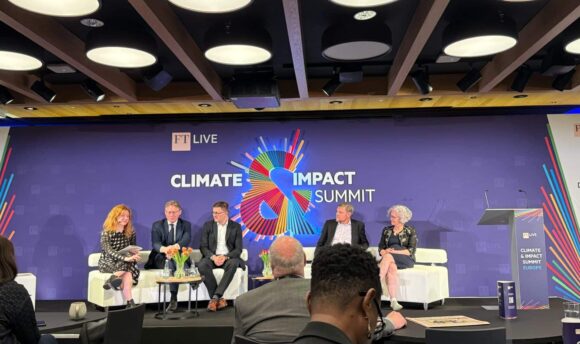Zurich, 31 March 2025 – Why are all his peers remaining silent?
Managing the risks of natural disasters, insurers are well aware of the fundamental risks which climate change poses to the global financial system and society. Munich Re first predicted growing climate risks in 1973, and the then CEO of AXA famously warned in 2015 that a world with 4°C of global warming would be uninsurable.
As professional risk managers, insurers have an influential voice in the public debate. Yet at a time when climate risks are turning growing parts of the world uninsurable, the leaders of the insurance industry remain remarkably quiet. We have experienced the first full year in which average temperatures passed the 1.5°C threshold and hear climate scientists ringing the alarm bells, yet insurers remain mum.
When the oil industry attacked the proposed Swiss climate protection law in 2023 and when the Trump administration started its onslaught against climate action around the world, insurance leaders failed to speak up for the climate science on which their businesses rely. And rather than advocating for stronger climate action, insurance associations are lobbying against stricter requirements for climate transition plans in the financial sector.
“Capitalism as we know it ceases to be viable”
In this environment of opportunism and acquiescence, the voice of Günther Thallinger, a member of Allianz’s management board, stands out. In a recent statement on LinkedIn Thallinger, who chairs the German insurer’s investment management and sustainability board, made a compelling case for the fundamental risks which climate change poses to global society and the need for rapid decarbonization. It is worth quoting his statement in some detail:
“The insurance industry has historically managed these risks. But we are fast approaching temperature levels — 1.5°C, 2°C, 3°C — where insurers will no longer be able to offer coverage for many of these risks. … This is a systemic risk that threatens the very foundation of the financial sector. If insurance is no longer available, other financial services become unavailable too.”
“At that point, risk cannot be transferred (no insurance), risk cannot be absorbed (no public capacity), and risk cannot be adapted to (physical limits exceeded). That means no more mortgages, no new real estate development, no long-term investment, no financial stability. The financial sector as we know it ceases to function. And with it, capitalism as we know it ceases to be viable. … There is only one path forward: prevent any further increase in atmospheric energy levels. That means keeping emissions out of the atmosphere. That means burning less carbon or capturing it at the point of combustion. These are the only two levers. Everything else is delay or distraction.”
Thallinger’s statement reflects the dire warnings of the British Institute and Faculty of Actuaries (IFOA), the world’s most renowned institute which trains and represents the risk analysts in the insurance industry. In a recent report, the IFOA warned that 3°C in global warming could reduce global GDP by 50% by 2070-90, result in the breakdown of critical ecosystems and the failure of states, and cause 4 billion excess deaths.
Will other insurance leaders step up?
As the chair of the Net-Zero Asset Owner Association and a member of a high-level UN expert group on net-zero commitments, Günther Thallinger has consistently advocated for stronger climate action by governments and financial institutions, and so has the IFOA. Yet where are their peers? Where are the insurance CEOs and Board chairs warning about the fundamental risks of runaway climate change to their industry and society at large? Where are the retired CEOs and Board chairs, who are liberated from the threats of unhinged autocrats to their companies and can speak up for the need to rapidly phase out fossil fuels?
When I asked a senior Swiss insurance manager why his industry didn’t speak up for climate science more, he told me that they were paid to manage risks, not to give public speeches. I wonder how this manager will explain his approach to his kids when they face the nightmare scenario which the recent IFOA report describes. Günther Thallinger has set a courageous example, and I hope other insurance leaders will follow suit.
Blog reposted from Swiss Climate Rambles by Peter Bosshard.



